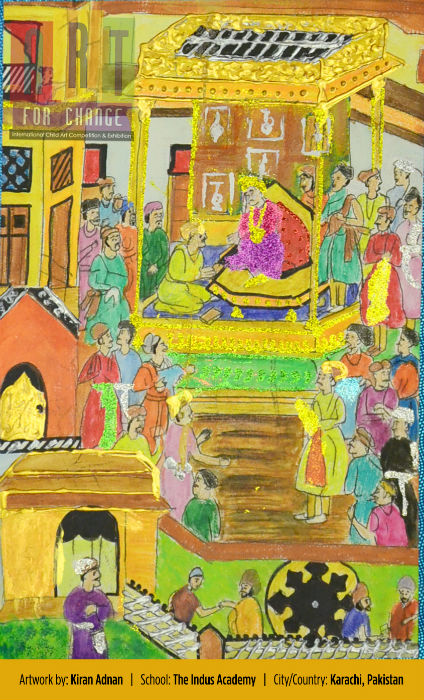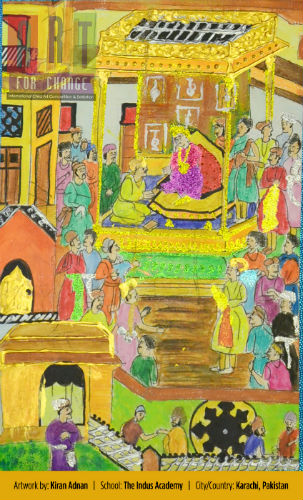NEWS
June 4, 2018

IN BRIEF
A popular children’s arts competition in Pakistan uses its platform to educate children about civic responsibility and integrity with support from the Accountability Lab. By Jessica Holzer Since 2014, the annual competition known as “Art for Change” has drawn some 15,000 entrants and raised $9,800 in scholarships for disadvantaged students. Together with Lab staff, Art for Change founder Mujtaba Zaidi chose “Positivity and Honesty” as the 2017 theme. Thousands of schoolchildren listened to presentations about the importance of these virtues for Pakistan and reflected on them in their artwork. One of this year’s winning paintings portrays a richly colored scene of “an [...]
SHARE
A popular children’s arts competition in Pakistan uses its platform to educate children about civic responsibility and integrity with support from the Accountability Lab.
By Jessica Holzer
Since 2014, the annual competition known as “Art for Change” has drawn some 15,000 entrants and raised $9,800 in scholarships for disadvantaged students. Together with Lab staff, Art for Change founder Mujtaba Zaidi chose “Positivity and Honesty” as the 2017 theme. Thousands of schoolchildren listened to presentations about the importance of these virtues for Pakistan and reflected on them in their artwork.
 One of this year’s winning paintings portrays a richly colored scene of “an honest and positive emperor” holding court. “People look up to a nation’s leader as a role model,” the artist, 12-year-old Kiran Adnan of Karachi, wrote on the submission form. “If a ruler is upright all will go well and the people will also be honest citizens,” she wrote. The painting will be exhibited along with other winning artwork later this year at the Open Gov Hub in Washington, D.C.
One of this year’s winning paintings portrays a richly colored scene of “an honest and positive emperor” holding court. “People look up to a nation’s leader as a role model,” the artist, 12-year-old Kiran Adnan of Karachi, wrote on the submission form. “If a ruler is upright all will go well and the people will also be honest citizens,” she wrote. The painting will be exhibited along with other winning artwork later this year at the Open Gov Hub in Washington, D.C.
The competition not only seeks to promote the arts but also to encourage social responsibility and to support education for marginalized children. Entrance fees from private-school students pay for art supplies so that disadvantaged children can compete on more equal footing. Cash prizes are awarded to winners and their artwork is put up for sale in exhibitions in major cities in Pakistan. Some children use the prize money to further support their education.
Zaidi, a participant in the Accountability Incubator Pakistan, is now leveraging the Lab’s network to take the competition global. Last year, he collaborated with the Lab’s country teams in Nepal and Liberia to gather more than 60 entries from Liberian and Nepalese students.
In June, Zaidi will travel to Buckingham Palace to collect the prestigious Queen’s Young Leader’s Award. He’ll meet 60 awardees from 22 commonwealth countries — an opportunity he hopes will help him spread the competition to more countries. “The idea is they can help different people in their own countries as well,” he says.
